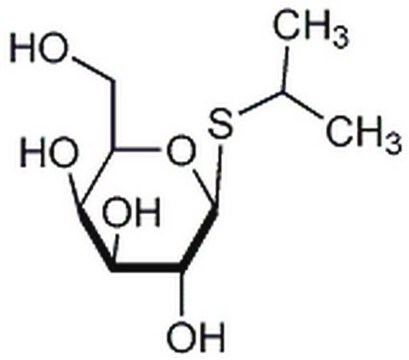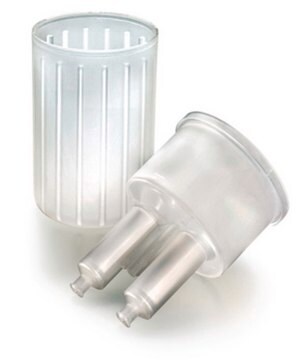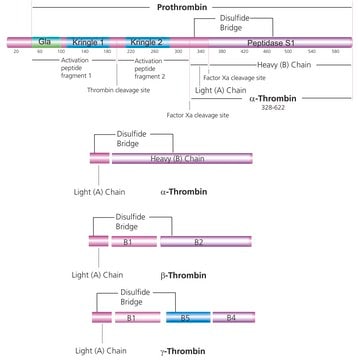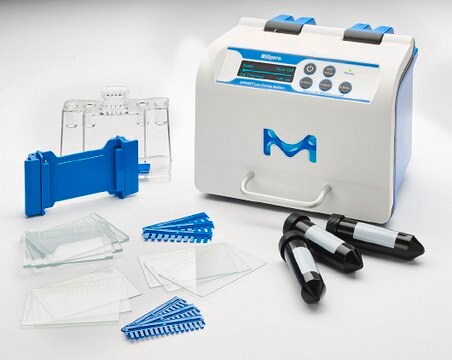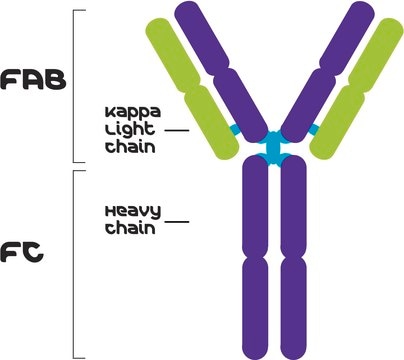MABF2237
Anti-NKp30 (CD337) Antibody
About This Item
ICC
IP
WB
activity assay
flow cytometry: suitable
immunocytochemistry: suitable
immunoprecipitation (IP): suitable
western blot: suitable
Produits recommandés
Source biologique
mouse
Niveau de qualité
Conjugué
unconjugated
Forme d'anticorps
purified antibody
Type de produit anticorps
primary antibodies
Clone
1C01, monoclonal
Poids mol.
calculated mol wt 24.93 kDa
observed mol wt ~32 kDa
Espèces réactives
human
Conditionnement
antibody small pack of 100 μL
Technique(s)
activity assay: suitable
flow cytometry: suitable
immunocytochemistry: suitable
immunoprecipitation (IP): suitable
western blot: suitable
Isotype
IgG2aκ
Numéro d'accès UniProt
Conditions d'expédition
dry ice
Température de stockage
-10 to -25°C
Modification post-traductionnelle de la cible
unmodified
Informations sur le gène
human ... NCR3(259197)
Description générale
Spécificité
Immunogène
Application
Evaluated by Western Blotting in Human spleen tissue lysate.
Western Blotting Analysis: A 1:1,000 dilution of this antibody detected NKp30 (CD337) in Human spleen tissue lysate.
Tested Applications
Western Blotting Analysis: A 1:1,000 dilution from a representative lot detected NKp30 (CD337) in Human tonsil tissue lysate.
Function Analysis: A representative lot of this antibody blocked the binding of NKp30-Fc to β-1,3-Glucan and reduced Nkp30 clustering. (Li, S.S., et. al. (2018). Nat Commun. 9(1):751; Li, S.S., et. al. (2013). Cell Host Microbe. 14(4):387-97).
Western Blotting Analysis: A representative lot detected NKp30 (CD337) in Western Blotting applications (Li, S.S., et. al. (2018). Nat Commun. 9(1):751; Li, S.S., et. al. (2013). Cell Host Microbe. 14(4):387-97).
Immunoprecipitation Analysis: A representative lot immunoprecipitated NKp30 (CD337) in Immunoprecipitation applications ( Li, S.S., et. al. (2013). Cell Host Microbe. 14(4):387-97 ).
Flow Cytometry Analysis: A representative lot detected NKp30 (CD337) in Flow Cytometry applications (Li, S.S., et. al. (2018). Nat Commun. 9(1):751; Li, S.S., et. al. (2013). Cell Host Microbe. 14(4):387-97).
Immunocytochemistry Analysis: A representative lot detected NKp30 (CD337) in Immunocytochemitry applications (Li, S.S., et. al. (2013). Cell Host Microbe. 14(4):387-97).
Note: Actual optimal working dilutions must be determined by end user as specimens, and experimental conditions may vary with the end user
Forme physique
Stockage et stabilité
Autres remarques
Clause de non-responsabilité
Vous ne trouvez pas le bon produit ?
Essayez notre Outil de sélection de produits.
Code de la classe de stockage
12 - Non Combustible Liquids
Classe de danger pour l'eau (WGK)
WGK 2
Point d'éclair (°F)
Not applicable
Point d'éclair (°C)
Not applicable
Certificats d'analyse (COA)
Recherchez un Certificats d'analyse (COA) en saisissant le numéro de lot du produit. Les numéros de lot figurent sur l'étiquette du produit après les mots "Lot" ou "Batch".
Déjà en possession de ce produit ?
Retrouvez la documentation relative aux produits que vous avez récemment achetés dans la Bibliothèque de documents.
Notre équipe de scientifiques dispose d'une expérience dans tous les secteurs de la recherche, notamment en sciences de la vie, science des matériaux, synthèse chimique, chromatographie, analyse et dans de nombreux autres domaines..
Contacter notre Service technique


